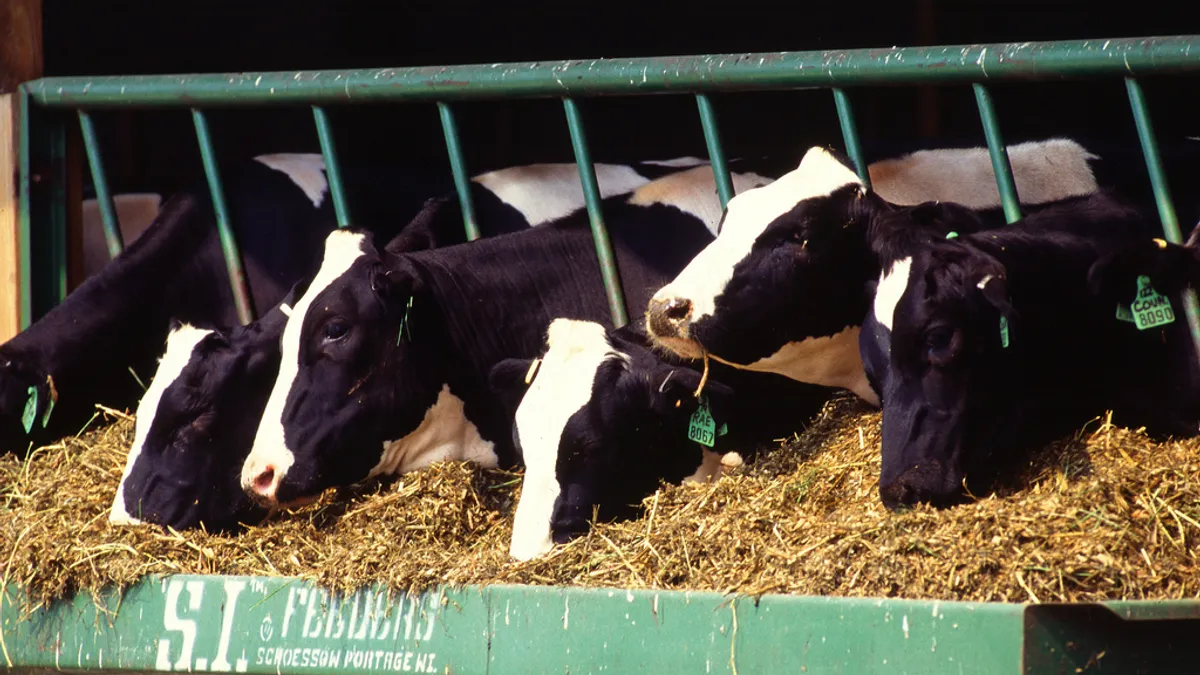Dive Brief:
- Large retailers — including Kroger and Albertsons — are investing in milk processing and bottling facilities to help make sure they have a steady supply of the commodity. Kroger is now processing all the fresh milk its stores sell, according to The Wall Street Journal.
- Walmart plans to open a large dairy plant in Indiana sometime next year, which would reduce the milk supply it currently sources from Dean Foods by an estimated 100 million gallons.
- Retailers say they're more agile than traditional milk processors and can make other products such as juice and iced tea when milk demand or prices slump. As Evan Rainwater, Albertsons’s senior vice president for manufacturing, told the newspaper, “You can do a lot more in a dairy plant than make dairy.”
Dive Insight:
Large grocery companies say they continue to see plenty of milk purchases in their stores, despite trends toward plant-based milks and other beverages. Processing and bottling their own milk gives them more control over the supply, plus they can potentially undercut prices of other suppliers with their own private label brands.
Dean Foods stands to lose a chunk of business when Walmart opens its Indiana dairy plant in 2018, although it will still supply Walmart stores outside the five Midwest states the facility will service. The country's largest milk supplier has been expanding into some non-dairy products to brighten its financial picture, which has recently been bleak. Its most recent earnings report showed gross profits at $467 million — about a 5% drop from last year — while net income was down 45% to $18 million and diluted earnings per share fell to 19 cents from 36 cents a year ago.
Already, retail chains like Kroger are using low milk prices to bring in shoppers. The Cincinnati-based retailer is selling milk at a loss, igniting a price war with Walmart and seemingly leaving private producers in the dust. While Dean Foods' branded varieties still sit in the dairy case next to the store brands, analysts have found that items like the company's Dairy Pure milk can be 40% more expensive.
As milk prices continue to edge downward, independent dairy producers continue to be squeezed out, and concerns are being raised about further consolidation in the U.S. dairy industry. Large retailers not only have the money to invest, but they can more easily absorb price fluctuations — especially if they control more of the supply chain through their own processing and bottling facilities.






